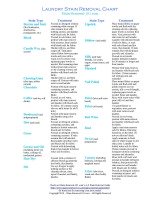How To Use Vinegar As Automatic Dishwasher Rinse Aid

Did you know that you can use vinegar as automatic dishwasher rinse aid?
I didn't until recently. However, I found out that the main ingredient in many commercial dishwasher rinse aids is vinegar. (Another common ingredient is
citric acid, which is another type of mild acid.)
The vinegar is used to reduce and eliminate
hard water spots on your dishes and glassware, so it comes out sparkling.
You can do the same thing with distilled white vinegar, and make your own homemade dishwasher rinse aid.
You have two options for getting the vinegar into your dishwasher.
The first option is to stop your dishwasher during the rinse cycle and add 1 to 1 1/2 cups of white vinegar, in a bowl, to the dishwasher.
The other option is to add the vinegar directly into the rinse compartment of your dishwasher.
***Update - I've gotten a lot of comments on this post below, with some people saying they've been doing this happily for years, while others have discouraged the practice. I would suggest reading the comments as well so you can make an informed choice of whether to do this or not.
I do know this is a MUCH cheaper alternative to store bought products, and I personally know many people that have done it for years, with no problem. ***End Update
If you decide to use a commercial product, check out these
dishwasher rinse agent reviews here to choose the best one for you.
 Click Here For Dishwasher Rinse Agent Reviews
Click Here For Dishwasher Rinse Agent ReviewsIn addition, you can
submit your own tips for using vinegar around your home here, or read tips already submitted.



Check Out These Related Articles



Related Pages You May Enjoy
Homemade Cleaners RecipesHouse Cleaning Tips & Tricks For Busy MomsGo From How To Use Vinegar As Automatic Dishwasher Rinse Aid To Home Page
Thanks For Visiting My Website: Grab Your Free Gift!

Hi, I'm Taylor, a busy mom with 3 kids, so I have lots of hands on experience with house cleaning, laundry and my fair share of spots, spills and other messy catastrophes. Thanks for visiting my site.
I update the website all the time with tips, tutorials, cleaning recipes, reviews of products from readers like you, and tests I've done on various cleaners, removers and laundry supplies.
I'd love to give you a gift! When you subscribe to my free weekly newsletter you will receive a free printable laundry stain removal chart that you can reference as needed.
I hope you enjoy this gift, and stop by again soon!

 Click Here For Dishwasher Rinse Agent Reviews
Click Here For Dishwasher Rinse Agent Reviews





 Visit Household Management 101
Visit Household Management 101
 Visit Home Storage Solutions 101
Visit Home Storage Solutions 101




